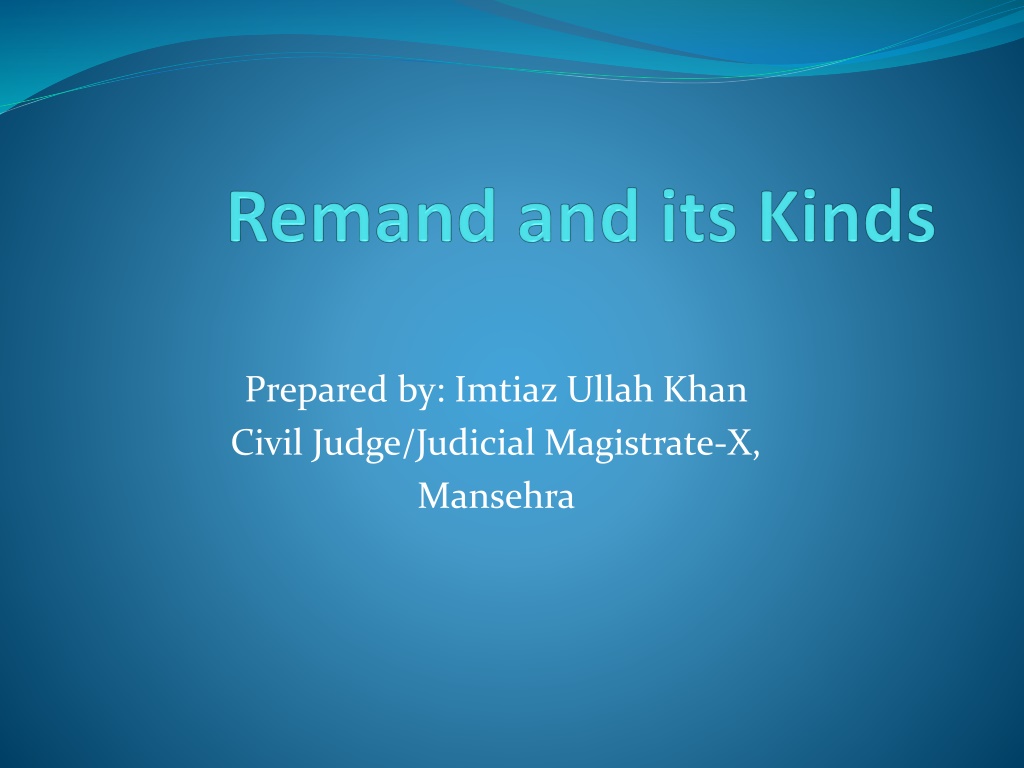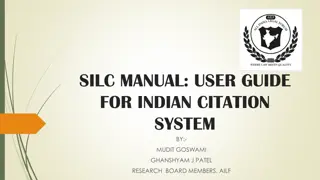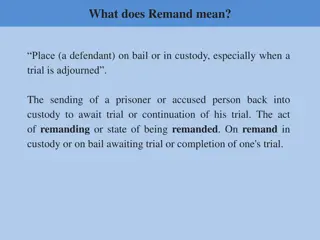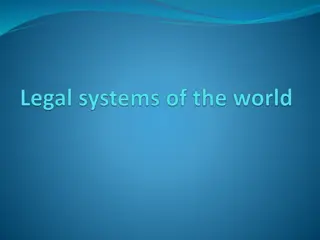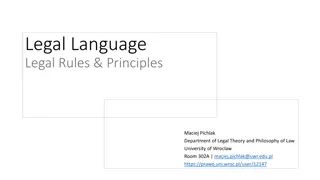Understanding Remand Procedures in Legal System
Remand in the legal context refers to the act of sending an accused or prisoner back to the competent authority. It involves pre-trial detention or provisional detention to aid investigation, collect evidence, ensure court attendance, and protect victims. Different kinds of remands exist such as police, judicial, and transit remands, each serving a specific purpose within the legal system.
Download Presentation

Please find below an Image/Link to download the presentation.
The content on the website is provided AS IS for your information and personal use only. It may not be sold, licensed, or shared on other websites without obtaining consent from the author. Download presentation by click this link. If you encounter any issues during the download, it is possible that the publisher has removed the file from their server.
E N D
Presentation Transcript
Prepared by: Imtiaz Ullah Khan Civil Judge/Judicial Magistrate-X, Mansehra
Meaning The dictionary meaning of the word remand means to return or send back. It also means pre trial detention or preventive detention or provisional detention
Legal Definition This term is used to refer to the sending back of the accused or prisoner to the competent authority. custody of a
Purpose The purpose of remand is to facilitate completion of investigation and to collect evidence. To ensure the accused attends the court hearing as required. For the protection of victim.
Power of the court to give Remand A 1stclass magistrate Section 30 magistrate. A 2ndclass magistrate if authorized by Provincial Govt.
Constitutional Protection Article 10 (2). Safeguard as to arrest and detention.
Remand Application To obtain remand police has to file an application before magistrate called Parcha Remand .
Section 61 CrPC No person so arrested, could be detained in police custody for more than 24 hours.
Section 167 CrPC Non completion of investigation within 24 hours: The person so arrested shall be produced before magistrate.
Whom may produce Not below the rank of sub inspector .
Kinds of Remand 1. Police Remand or Physical Remand. 2. Judicial Remand. 3. Transit Remand.
Police Remand or Physical Remand when accused is sent back to custody of police.
Judicial Remand When accused is sent to judicial lockup or jail.
Transit Remand Means on a journey and in the course of transportation from one place to another.
Right of accused held in remand: Rights of accused during Remand. get legal assistance; communicate with relatives; receive medical assistance if sick; and remain silent.
Conclusion To facilitate investigation. To collect evidence. To curtail the illegal detention of citizens. To curtail abuse of process of law.
